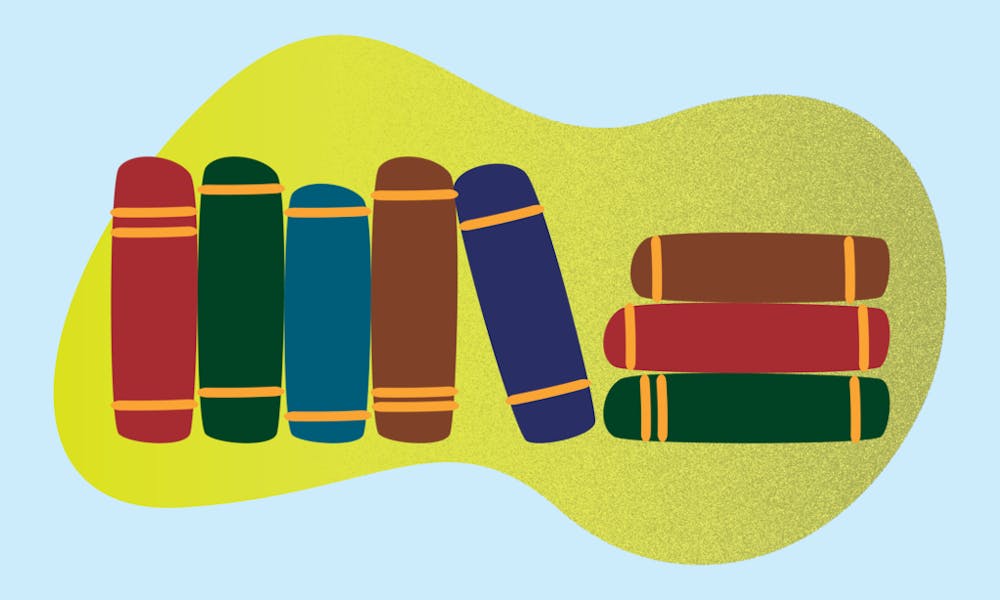From light hearted novels that serve as comic relief to stories that weigh in on the messiness of real life, literature captures the complexity of human experience, helping us as readers to appreciate what makes us different and to reflect on where we come from. Thus, representation in written works is something that should be both cherished and advocated for, as books provide arguably the richest material for personal reflection.
We should all challenge ourselves to broaden our perspectives by consuming works produced by groups whose voices have been traditionally underrepresented in the literary Canon. For those of you looking to break into the world of books written by Asian authors, this list is for you.
Pachinko, by Min Jin Lee
This multigenerational historical novel sheds light on the legal and social discrimination that many immigrants—more specifically, Asian immigrants in this story—face after leaving their homelands. Named a finalist for the National Book Award for Fiction and one of the 10 best books of 2017 by the New York Times, Pachinko follows a Korean family that migrates to Japan. In order to elevate their social status in this new society, the family opens up a pachinko parlor, a popular slot machine style game. Cultures clash, giving readers a new perspective on what it's like to feel like an outsider in your own community.
Little Fires Everywhere, by Celeste Ng
Set in Shaker Heights, Ohio—the town where Ng grew up—in the 1990s, Little Fires Everywhere follows the intertwined fates of the Richardsons, a middle class suburban family, and an enigmatic single mother and her daughter. The two families find themselves on opposing sides of a custody battle over the adoption of a Chinese baby. This story explores the societal demands of motherhood and the power of privilege and has since been turned into a Hulu miniseries starring Reese Witherspoon and Kerry Washington.
The Poppy War, by R.F. Kuang
A grimdark fantasy, The Poppy War is rooted in the politics of mid–20th century China. The novel's atmosphere is inspired by the Song Dynasty , with the conflict derived from the Second Sino–Japanese War. For those looking to be pulled through an exhaustive range of emotions, this book is for you. Filled with thought–provoking commentary on the nature of war, social imbalance, and religion, Kuang paints a portrait of the darkest parts of humanity.
When Breath Becomes Air, by Paul Kalanithi
If there is a must–read out of any of the books on this list, it's this memoir written by the late Indian American Neurosurgeon Dr. Paul Kalanithi. You don’t have to be on the pre–med track or have any interest in health in general to enjoy When Breath Becomes Air. Dr. Kalanithi’s retelling of his quest to discover "What makes a life worth living?" is a life–affirming reflection on the challenge of facing death and on the relationship between doctor and patient.
A Thousand Splendid Suns, by Khaled Hosseini
Set against the backdrop of the turmoil that has overtaken Afghanistan in the last 30 years, Afghan American author Khaled Hosseini focuses on the relationship between mothers and daughters, as well as friendships between women, in A Thousand Splendid Suns. This story details the plight of women living in modern–day Afghanistan, where uneducated poor women endure the slights of men and the scorn of society. It tells a tale of two generations of characters brought together by the war as they struggle to survive and raise a family. Utilizing straightforward and utilitarian expressions to convey the emotions of his characters, Hosseini is able to evoke sympathy and bring attention to unhappy families, abusive and forced marriages, repressive cultural customs, and oppressive governments.
An Ember in the Ashes, by Sabaa Tahir
Pakistani American author Sabaa Tahir takes readers into the brutal dystopian world, the Martial Empire, in An Ember in the Ashes. Inspired by ancient Rome, this fantasy novel follows a family barely making ends meet in the Empire’s impoverished streets. Tahir focuses on how in an oppressive society poisoned by slavery, all attempts at individuality fall under threat. Using the repetition of violence, she is able to chillingly portray that none of the characters are ever safe and free from the shackles of the injustices that plague not just their world but ours, too.
The Leavers, by Lisa Ko
Centering in on the issue of undocumented migrants in the United States, Chinese American author Lisa Ko comments on the cruel immigration system instated in our country that tears families apart. Inspired by a New York Times article about an undocumented immigrant from Fuzhou, China, who spent over a year in detention after being arrested at a Greyhound station in Florida on her way to a new job, Ko highlights the traumas that migrant families face under the strict immigration policies enforced by the Trump administration. The political resonance of The Leavers could hardly be better timed. For anyone interested in the ramifications of American immigration policy, I highly encourage picking up this book.
On Earth We’re Briefly Gorgeous, by Ocean Vuong
Vietnamese American poet Ocean Vuong crafts a beautiful narrative about people caught in disparate worlds in On Earth We're Briefly Gorgeous. His debut novel begs the question: "How can we heal and rescue one another without forsaking who we are?" In the form of a letter from a son to an illiterate mother, Vuong unveils a family’s history rooted in Vietnam. With content even more evocative than its title, this book should be read in small doses and is arguably incapable of being absorbed at once. Though not because the poetic language is difficult, but rather because the subject matter, while painful at times, must be thoroughly appreciated.
By picking up one of these books, not only will you learn about a different culture or connect with your own heritage, you are also supporting Asian authors in what they do. Let’s embrace our diversity and where we came from.







